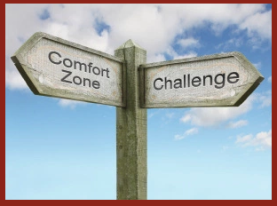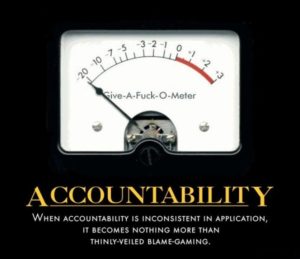Exploring the Boundless Creativity: Unveiling the Best ChatGPT Prompts

In the vast landscape of artificial intelligence, ChatGPT stands out as a powerful language model that has revolutionized the way we interact with machines. One of the key factors contributing to its success is the ability to generate responses based on prompts provided by users. In this blog, we delve into the realm of ChatGPT prompts, exploring the creativity, versatility, and ingenuity that users have unlocked through this fascinating technology.
- Unlocking Creativity: A Canvas for Imagination
One of the most captivating aspects of ChatGPT prompts is their ability to serve as a canvas for creativity. Users have discovered that the right prompt can evoke imaginative and unexpected responses from the model. Whether it’s crafting fictional stories, generating poetry, or envisioning alternate realities, ChatGPT transforms prompts into a playground for creative expression.
Example Prompt: “In a world where gravity works in reverse, describe a day in the life of an ordinary person.”
The results are often mesmerizing, as ChatGPT weaves intricate narratives and vivid descriptions that transport readers to a world beyond the conventional.
- Problem Solving and Learning: A Tutor in Text Form
Users have harnessed the power of ChatGPT prompts for educational purposes, turning the model into a text-based tutor. Whether it’s solving complex math problems, explaining scientific concepts, or delving into historical events, ChatGPT showcases its versatility as an educational companion.
Example Prompt: “Explain the concept of quantum entanglement and its implications in simple terms.”
The model’s ability to break down complex topics into digestible information provides a valuable resource for learners seeking clarity and understanding.
- Entertainment Galore: ChatGPT as a Storytelling Companion
For those seeking entertainment, ChatGPT prompts offer a gateway to captivating and personalized storytelling experiences. Users can craft prompts that lead the model to generate suspenseful mysteries, hilarious anecdotes, or thrilling adventures.
Example Prompt: “Create a suspenseful short story set in a futuristic city where technology suddenly stops working.”
The resulting narratives are not only engaging but also showcase ChatGPT’s adaptability in tailoring its responses to suit various genres and tones.
- Exploring Alternate Realities: ChatGPT as a World-Building Partner
World-building enthusiasts have found a reliable ally in ChatGPT prompts when constructing fictional universes. By providing detailed prompts, users can prompt the model to populate worlds with unique characters, cultures, and histories.
Example Prompt: “Design a mythical civilization that thrives underwater and interacts with surface-dwelling societies.”
The results often exceed expectations, demonstrating ChatGPT’s capacity to breathe life into fantastical realms.
Conclusion:
The world of ChatGPT prompts is a fascinating journey into the limitless possibilities of human-machine interaction. From igniting creative sparks to serving as educational aids, ChatGPT prompts have become indispensable tools for users across diverse domains. As we continue to explore the potential of this groundbreaking technology, it’s clear that the best ChatGPT prompts are the ones that spark curiosity, inspire creativity, and push the boundaries of what’s possible in the realm of artificial intelligence.
Stay tuned for more updates and posts about A.I and how to use it.
The Key Elements of Effective Website Design: Discover the importance of user-friendly navigation, compelling visuals, and clear calls-to-action in creating a successful website.

In the world of website design, understanding the key elements that contribute to an effective and successful website is essential. We like to focus on three crucial components: user-friendly navigation, compelling visuals, and clear calls-to-action.
User-friendly navigation plays a vital role in ensuring that visitors can easily find what they’re looking for on your website. Intuitive menus, clear categorization, and logical site structure help users navigate seamlessly, enhancing their overall experience. By prioritizing ease of use and accessibility, you can keep users engaged and encourage them to explore further.
Compelling visuals are another essential aspect of web design. Humans are visual creatures, and incorporating visually appealing elements can significantly impact user engagement. From high-quality images and videos to eye-catching graphics and illustrations, visual content can captivate visitors and convey your brand’s message effectively. Consistent branding and a visually appealing layout also contribute to building a strong and memorable online presence.
Clear calls-to-action (CTAs) guide visitors towards taking desired actions on your website. Whether it’s signing up for a newsletter, making a purchase, or filling out a contact form, well-designed CTAs prompt users to engage with your business. Attention-grabbing buttons, persuasive copy, and strategic placement help draw users’ attention and increase the likelihood of conversions.
By focusing on these key elements, we can create websites that are not only visually appealing but also functional and user-centric. Understanding the principles of user experience (UX) design, which emphasizes the importance of meeting users’ needs and providing a seamless experience, is crucial in achieving success in web design.
#webdesign101#UXdesign
Radio Advertising Works.
Yes! We are a fan of Radio Advertising, the radio can be an effective way to reach a local or regional audience with a message that is memorable and engaging. Here are some reasons why advertising on the radio can be beneficial for businesses:
Targeted reach: Radio stations often cater to specific demographics or audiences based on the format of the station (such as news, sports, music, or talk shows), which can help businesses reach a specific target market.
Cost-effective: Compared to other advertising mediums like television or print, advertising on the radio can be relatively affordable, especially for local or regional campaigns. Increased brand awareness: Radio advertising can help increase brand awareness and familiarity through repeated exposure to a message, slogan, or jingle.
Engaging content: Radio stations often have engaging content that can hold listeners’ attention, making it more likely that they will hear and remember an advertisement.
Local focus: Radio stations often have a local focus and can help businesses reach a local or regional audience.
Overall, advertising on the radio can be an effective way to reach a targeted audience with a memorable message, especially for local or regional businesses.
Radio reaches millions of listeners every day, making it a powerful and cost-effective way to get your message out to a wide audience. So go ahead and tune in!
What should you showcase on your website?
There are several key elements that you should showcase on your website to make it effective in achieving your business goals:
- Clear and concise messaging: Your website should clearly communicate what your business does and what value it offers to customers. Use language that is easy to understand and avoids technical jargon.
- High-quality visuals: Use images, videos, and other visual elements to capture visitors’ attention and communicate your brand’s personality and values.
- Testimonials and reviews: Showcase positive feedback from satisfied customers to build trust and credibility with new visitors.
- Contact information: Make it easy for visitors to get in touch with you by providing clear contact information, such as a phone number, email address, and physical address.
- Calls-to-action: Encourage visitors to take action by including clear calls-to-action, such as “buy now,” “subscribe,” or “contact us.”
- Social proof: Display logos of notable clients or partners, industry certifications, awards, or press mentions to establish your business’s credibility and authority.
- Mobile responsiveness: Make sure your website is optimized for all devices, including mobile phones and tablets, to ensure a seamless user experience for all visitors.
By showcasing these elements on your website, you can effectively communicate your business’s value, build trust with visitors, and encourage them to take action.
The Passionate Business Woman – Never Give Up!

I am writing this article from my 20 years of marketing experience, and I can’t deny I have felt like giving up many times. There are many obstacles and goals that I want to achieve and sometimes it feels like I will never get there. However, I have picked myself up and dusted myself off because I have this NEVER GIVE UP attitude and so should you.
To achieve something incredible, you need to go beyond your comfort zone and keep challenging yourself. This is not an easy thing to do, but it is attainable!

Running a business is not easy, sometimes……..well most of the time we have so many ideas and we plan to execute these ideas to reach our goals. We have made a business plans and with the business plan you also have a marketing plan, these are essential for your business.
Then there are obstacles that we must over come but sometimes these obstacles keep coming and we just keep jumping over those hurdles. In any business you can reach a point where you seem stuck, even if you have tried many times to jump these hurdles. This is what I call the breaking point, the point where most people give up. They are almost there, if they adapted the NEVER GIVE UP attitude, they would have jumped this hurdle.

Then there are those who may have that attitude of NEVER GIVING UP and they have a thriving business today! I am one of those people! The more you work, the more you focus on what you want, the hurdle does not seem so bad after all and you will achieve your goals. Reaching the sky in your particular profession is what I am talking about! This is what we are all aiming for. This is the key that differentiates between those who will make an impact and all the others. You should never get discouraged when things do not go exactly as planned or expected. Prove to yourself to NEVER GIVE UP, Focus on your goals. It will not come overnight but you will eventually get there with self-improvement and constant determination.
My Advice to you is to keep going no matter what and you will get to where you want to be.
Please stay tuned and follow me for more articles that will help you achieve your goals. This advise is free!

The Passionate Business Woman – www.learmonthmarketing.com
My Goal is to inspire other women.
Why you NEED to build YOUR OWN business

So, you want to start your own business, it can be scary, & intimidating. There are so many unknowns, but you want to take that plunge. I say go for it! Some people are destined to be entrepreneurs because this is a dream they have always wanted. You will have more job stability, you will never have to worry about being laid off or fired. If this is something that you have been thinking about for a long time and you really want to make it a reality, JUST DO IT! Invest in yourself!
TAKE THE RISK & YOU’LL GAIN THE REWARDS!

Did you know that owning your own business will eventually give you more spare time & flexibility? The benefits of owning your own business should help with motivation on a whole different level. Pursuing your passion, this is what makes you happy. What we do with our lives should make us happy, so why not create your own environment?
THIS IS WHERE YOU CALL THE SHOTS
This is why small business owners love what they do and do what they love - because they created something from scratch. They create their own deadlines, they sell what they want to sell & how they want to sell it, they create jobs which help the economy, they build a team, & they become mentors.
THEY FOLLOWED THEIR DREAM!
You as a business owner have the power to give. You are helping people by using products or services to improve people’s lives. Almost no matter what the products or services are, people need or want them. As a business owner you will meet new people by connecting with other businesses and connecting with your clients. Create real, personal connections and discover new fields. Your learning will always continue, and you will become an expert in your field acquiring many new skills. You will have the power & flexibility to get involved in the community and donate time and money to a worthy cause.
YOU WILL INSPIRE OTHERS BY SERVING AS AN EXAMPLE
FOR OTHER PEOPLE TO FOLLOW THEIR DREAMS.

Let’s talk money…………. Yes, you may be on a small budget when you start your business, but it will get better! One of the best parts of owning your own business is financial independence, you while you make money you'll have the advantage of lots of tax breaks!
IT IS ALL UP TO YOU AS TO HOW MUCH MONEY YOU WANT TO BRING IN!
After you start your own business you will finally start taking pride in the work you are doing. There is so much pride and fulfillment because you have built it! You created your own opportunities & your own solutions. You have built a personal brand & started earning recognition & built a reputation because of it. If you have ever dreamed of becoming an entrepreneur and becoming wildly successful, this is your chance & there is nothing stopping you but YOU!
CHANGE THE WORLD & HAVE A GREAT STORY TO TELL!

ALWAYS SET YOURSELF UP FOR SUCCESS!
"It's not really work if you are doing what you love"

Accountability

Over the years have you struggled with goals that you set for yourself? Did your commitment last for awhile and then you fell off the band wagon?
You know the drill. You invest a lot of time in building and growing your business. You make many personal sacrifices. You hope that the trade-off is more clients and more revenue, more progress toward your goals, and more prosperity so you can enjoy your life even more.
You look back over a week, a month, a year, five years, and what do you see?
Yes, you realize you have made some progress, but you are not seeing the progress you hoped for in view of what you have invested.
You may even feel you have hit a brick wall or that your progress is linear.
What are some things you can do to be accountable to your goals?
Be in the right mindset
Don't let negative thoughts get in the way
Stop making excuses
Make your business the priority
Have an accountability buddy (spouse or other)
Educate yourself on your goal
This is your passion! Make it work!

Jennifer Learmonth 2017
Social Media – Under the Scope

Technology is the purveyor of knowledge. It sustains our environmental needs and it has transformed the way we think and the way we interact in our world. In this post I'll discuss the way technology influences ethics within our social relationships through innovative digital communication tools that surpass the traditional means of social interaction. The impact of social technology has changed our ways of ethical reasoning when it pertains to our privacy and communicating with each other. This impact has been thought about, and theorized upon, and should be taken seriously. These new innovative tools have re-programed our social skills, but yet at the same time the overuse of the technology is wide spread (Franklin, 2004). All these new online communication tools have been given to us, without asking questions we take and we take, we have become more enveloped in technology.
Facebook was created as a network for university students to connect and for potential employers to view student’s portfolios. However, not many people know that Facesmash was developed three months before Facebook was created. Facesmash was created on the idea of invading and socially humiliating people with inappropriate, unethical and unbecoming conduct (Mezrich, 2010). Facebook is valued at over 65 billion dollars and according to Facebook statistics there are more than 500 million active users. 50% of them log on to Facebook on any given day, the average user has 130 friends, and people spend over 700 billion minutes per month on Facebook. That is a lot of minutes in our collective life time.
Social networking, such as Facebook, is a way to reconnect with family and friends. It has reshaped the way we enter, maintain, and exit relationships. Sharing your life, and filling in the blanks has never been easier. Before all this socializing took place online, our privacy in our daily lives seems to have had more importance. Thinking about issues that fall within the realm of technology is not always consistent with thinking about similar issues outside of technological realms. If you read someone’s personal diary, this would be considered an invasion of privacy (Liu, 2009). Why is it more acceptable to post online, that live image video of someone in a public place? Does this not invade their privacy? Unfortunately, people treat Facebook as an important part of their lives, living on Facebook, sharing every detail of what you are doing each day, maybe even every hour, half-hour. Telling the world when your drinking your coffee or going for a walk is not the ideal way of protecting your privacy. This obviously has opened the door to major privacy issues and our mental image of socializing has slowly changed.
Online socializing has become a normal part of our social life, these social networking tools have enhanced our communication capabilities and at the same time challenged traditional ideas about privacy and ethical conduct. For some reason, no one conceives his/her presence on a social network platform as his/her personal space, therefore, clouding their understanding of the visibility of their online behaviour and choices. Some people will agree that Social Networking has brought people together. Identity information, included in public profiles, serves to lower the barriers to social interaction and thus enable connections between individuals that might not otherwise take place. Also, with all these ways of digital communication that demand our attention they can often preclude interaction with others by sending a clear message of “DO NOT DISTURB”, such as the use of mobile devices, Therefore, creating a social block( Ziv, 2009).
In today’s world you can also meet people online; these dating services are another form of Social Networking and they appear to be a great way of meeting new people. However, these dating sites offer a little less than satisfactory way of a proper physical introduction (Romm-Livermore, & Somers, 2009). This brings morale down because not everyone has the same value system. This can hurt your self-esteem by meeting and dating many people until that right one comes along. Yet at the same time most abuse this system, the online dating service is just like a catalogue, you are only judging those from a photo and a few words. What happened to the old fashioned way of socializing and meeting people, by using emotional cues and communicating? Face-to-Face interaction is imperative and affects our brain. Also, people that are already lonely often get lonelier by use of these social networks, “when you’re lonely, your brain is in a heightened state of alertness for social threats” (Engelberg, & Sjoberg, 2004). This effect is heightened online because social threats are more difficult to anticipate there. According to Engelberg & Sjoberg a long silence between replies during an online chat can spawn fears that others are locking you out of the conversation and gossiping behind your back. Another source of insecurity is the very currency of social networks: the number of contacts one has. Engelberg & Sjoberg state that having a mere handful of contacts when others could fill a stadium with their roster can leave lonely individuals feeling that their desires are moving ever farther out of reach. Also, lonely people bring out their true personalities online. “Loneliness is the deficit between what you want and what you have, and chronic loneliness makes people act in ways that push others away. Social networking isn’t equipped to handle that and can actually make it worse.”(Engelberg, & Sjoberg, 2004).
Our judgment is clouded when we consider the difference between public and private use of networking sites such as Facebook. Many people use this network as a place to communicate with family and friends; however employers are using social networking to keep track of their employees. You can find many reports involving invasion of privacy. TheBostonChannel.com reported a story of a teacher who was forced to resign after comments she posted on Facebook about her job, basically posting she was not happy with her job, she defended herself by saying it was not the kids but it was a political view of the school itself. There are also examples of how people have been reprimanded for their ethical misconduct online. A report in Scrubsmag.com, entitled the Nurse’s Guide to Good Living, gave an account of five nurses in California that were fired for discussing patients on Facebook, and two other nurse’s from Wisconsin fired for posting a patients x-ray.
I think that our moral values and judgments are also being impacted with the use of social networking. We are becoming sensitized toward acts of violence. In September 2010, CTV reported that a young girl in Vancouver was gang raped at a local rave; she was drugged and raped by 5 to 7 young boys. A 16 year old boy took pictures and a video that was posted online through Facebook and other sites. He was charged with reproducing child pornography. These photos and videos were continuously being reposted among the teenagers despite RCMP efforts to stop this from happening. Social networking has changed our sense of accountability. Improper communication and the way we conduct ourselves go hand-in-hand.
In real life situations the majority of people within our society conduct themselves in moral ways, so why should it be any different online? It takes a lot of mental fortitude when physical interaction is occurring because you actually see the direct consequences of your actions. Using cyber bulling as an example, there is no physical interaction. When it occurs, on Facebook or any other social networking platform, you really don’t see the consequences of the hurt that you could be causing for other people. There is a separation of cause and effect, this makes cyber bullying more accessible and makes it less impactful to the perpetrator of the bullying (Zheng, & Burrow-Sanchez, 2010). Is cyber bullying more acceptable in our society than it is to physically bully a person? I agree this may be the case; the ethical reasoning behind this issue is that when physical interaction takes place our morals and values are more visible. When online, these morals and values seem to have less of an impact on one’s conscience and one seems to think that there is less of ethical reasoning when hiding behind a networking system. The fact is, people that post things online in a derogatory manor may not have the fortitude otherwise, and now they have an easy way of doing it. The video of the horrific crime against the young girl in Vancouver seems to be acceptable among the younger crowd. The visibility of the impact it has had on the younger girl seems to be far-reaching among the younger crowd that recorded it and keeps passing it around online.
People seem to be overusing and losing real emotional contact, creating a social isolation. The Social Networkers who fare best are the ones who use the technology to support their existing friendships (Engelberg, & Sjoberg, 2004). Meaning, when the social networking site is used positively, our online social contact should also be our offline social contacts. Face- to- face interaction appears to be the pivotal variable in social networking sites. When social networking is used to meet new people and build old relationships with friends especially with older adults, these people seem to actually lose some part of real social skills and feel lonely. This can bring down morale, and lose part of their value system by lacking in real person-to-person socializing skills (Engelberg, & Sjoberg, 2004).
There is a lack of inflection when people are not actually talking to each other which can cause a negative impact on real social skills expressing emotion, it's hard to understand a proper tone, and it also leaves a paper trail. Take the high school teacher that was fired over posting on her Facebook comments that she was not happy with her job. Would it have been the same if she commented in a face-face conversation with a friend? People have to realize that there is a real problem with non-physical interaction on social networking sites, people are getting into trouble over it and spending too much time on them. These wrongdoers who use this as a spreading of degrading communication are the ones that should be punished but where do you draw the line of privacy and our rights of freedom of speech. In Canada this employer would be violating the employees’ rights and freedom. According to Section 2(b) of the Canadian Charter of rights and freedoms "Everyone has the following fundamental freedoms: ... freedom of thought, belief, opinion and expression, including freedom of the press and other media of communication." It's very difficult to regulate the use and privacy issues in Canada because if these site are on a world wide web, our laws cannot be applied to foreign based organizations. As well there is an abundance of different national legislation that regulates privacy. To clarify, think of a casino on a cruise ship, there are areas that the cruise ship goes that gambling is legal and other areas where it is illegal. In both cases the casino still exists just the same as the web. Access is still readily available no matter where you are. On the other side of this issue is a concern of defamation. The Law of Defamation in Canada states that “no system of civil law can fail to take some account of the right to have one’s reputation remain untarnished by defamation”.
I believe we ned to take care not to lose ourselves in a world that no longer has a real sense of communication; we are slowly distancing ourselves away from real social contact. By doing this it is creating a problem in our lives, even if we don’t take notice right away. We are slowly failing at real communication, these variations of our innovative digital communication technology needs to be defined as to their proper use, privacy standards, and means of ethical conduct. The loss of our social skills and the way we conduct ourselves online has reflected changes in our values and morals. Civilization is governed by rules that we have created. It is our values that guide moral, conventional, and personal matters, however in some cases online these values are placed aside. Within our physical interactions mental fortitude and fear of consequences directs our actions. Social networking becomes a space where our values are depleted and negative interactions are for the most part tolerated. Those who participate do not see the consequences of their actions and therefore cannot sympathize and feel compassion or empathy towards another human being.
Jennifer Learmonth June 2015
What Marketing Means To Your Business

This is a powerful video of Steve Job’s Marketing strategy. Clearly his vision and how he defines his marketing worked for his business. Hopefully this video will help you understand exactly what you want your business to look like and how you want your business to be portrayed.
“Marketing is about values”. In this statement Steve Jobs has targeted the meaning of Marketing. Marketing is the identification and satisfaction of consumers’ needs. Consumers may or may not be able to articulate those needs, consumers may or may not know what will satisfy them. It is our job to help consumers understand what it is they want or need. It’s all about the way we portray it. It all depends on us.

